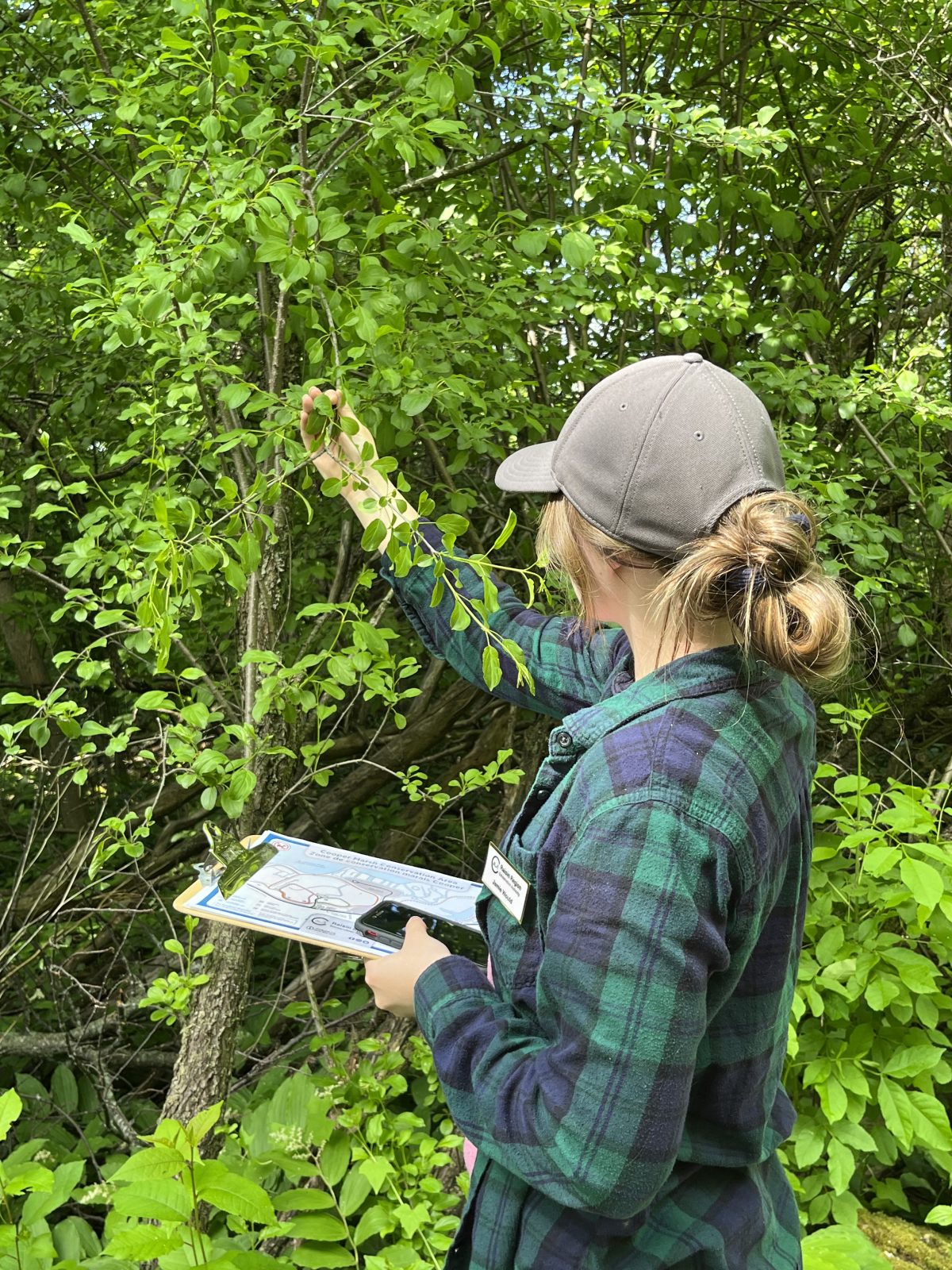Cooper Marsh Conservation Area is a well-know haven for native biodiversity, yet some areas in the provincially significant wetland are being overtaken by a pair of tenacious invaders: common buckthorn and glossy buckthorn. After conducting extensive mapping surveys throughout Cooper Marsh, the Raisin Region Conservation Authority (RRCA) is now set to fight back against the stubborn shrubs.
“If left unchecked, buckthorn can easily take over large areas,” says RRCA Project Coordinator, Caroline Doroshenko. “Besides taking up space and upsetting ecosystem balances, buckthorn actually alters the chemical composition of the soil, making whole areas unsuitable for other plants such as native bullrushes and sedges, wild rice, trilliums, and jack-in-the-pulpit, to name a few.”
Buckthorn removal operations are set to take place at the Marsh in mid-February, with additional maintenance scheduled for the summer. RRCA will replace the buckthorn with a diversity of native trees and shrubs.
“Common buckthorn was originally brought over from Europe in the 1800s and was used both in landscaping and along hedgerows,” says Doroshenko. “Now it has literally become a thorn in our side, as it can be found in a variety of different terrains and conditions in Southern Ontario.”
Common buckthorn, also known by its scientific name, Rhamnus cathartica, grows in dense clumps and can reach a height of six metres. The ends of its branches end in a sharp thorn, and the plant produces dark berries. It is often the first vegetation to sprout leaves in the spring and the last to lose them in the fall. Glossy buckthorn, Frangula alnus, tends to grow in wet areas and does not have the sharp thorn on the ends of its branches. It possesses shiny leaves with smooth, wavy edges.
The RRCA has also completed a survey of another notorious invasive plant present at the Marsh, the tufty-tipped tall reed, Phragmites australis, and will be developing a management plan to push back and control it.
The RRCA will temporarily close some trails and other areas of Cooper Marsh while the February buckthorn extraction takes place. Trail closures will be posted at Cooper Marsh and shared on the RRCA’s website and social media channels.
This invasive species control is part of the RRCA’s Cooper Marsh Biodiversity Project, a multi-year effort to protect and enhance the Marsh’s rich biodiversity through habitat planting and enhancement, biodiversity monitoring, and outreach. This project was undertaken with the financial support of the Nature Smart Climate Solutions Fund, a Government of Canada’s Department of Environment and Climate Change program in partnership with Conservation Ontario. Funding for the project was also provided by Ontario Power Generation.
For more information visit rrca.on.ca or contact (613) 938-3611 or info@rrca.on.ca.



